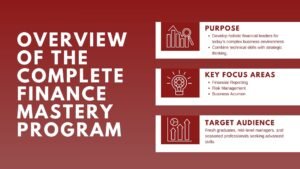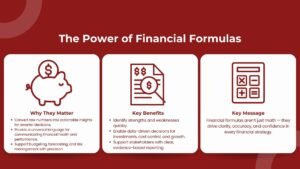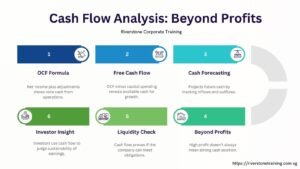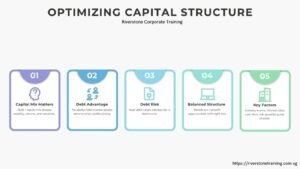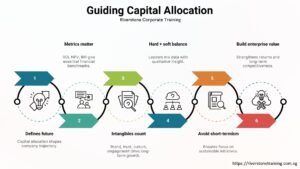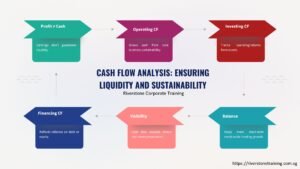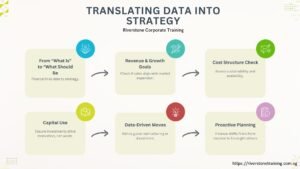Capital Markets Courses Understanding Stocks Bonds and Securities
Capital Markets Courses: Understanding Stocks, Bonds, and Securities
The world economy is dependent on the capital markets. They offer the channels by which finance is raised by business, money is invested by investors and money is raised by governments to finance development. Any person in the finance field should know the functioning of stocks, bonds, and securities. Capital markets courses equip learners with the knowledge and analytical model to be able to navigate around this complex ecosystem with certainty. For anyone in the finance industry, understanding how stocks, bonds, and securities function is essential. Capital markets courses Singapore for finance professionals equip learners with the analytical frameworks and practical knowledge to navigate this complex ecosystem with confidence.
In finance, to students, or to corporate executives, being savvy about capital markets is not only about how to trade or even invest, but about how money flows, how risk is priced as well as how financial systems around the world relate. The courses are a point of entry into investment banking careers, assets management careers, risk analysis careers, and financial advisory careers. These programs often serve as gateways to careers in investment banking, asset management, risk analysis, and financial advisory, making them indispensable for those looking to excel in high-impact finance roles.

What Capital Markets Courses Cover
Most capital markets courses start with some background on the design and the role that financial markets perform. Students get acquainted with the two major segments, namely, primary markets, when securities are first issued (such as with IPOs or bonds), and secondary markets, where securities already in the market are exchanged between buyers and sellers.
One of the key aspects of such courses is the knowledge of the various securities. Common and preferred shares are examples of equity instruments, and they are ownership positions in businesses and provide the likelihood of dividends and capital gains. Debt instruments, such as government and corporate bonds, are a form of borrowing setup which acquires a predetermined income to the investor.
The participants are also introduced to the derivatives- derived contracts like options, futures and swaps which are either hedging derivatives or speculative contracts. Through the curriculum Learn how stocks, bonds, and securities work through capital markets training on the derivatives, learners learn how financial risks are managed and how one can utilize the market trends.
Even the modern capital markets course is taught along with practical learning on how the world stock exchange works, the significance of investment banks as well as regulation in ensuring transparency and protection of shareholders.
The Importance of Capital Markets Knowledge
Any finance professional should have knowledge of the capital markets. It helps analysts to learn the impact of market forces on the costs of financing a corporation, the choice to invest, and the economic growth.
As an illustration, the issuance of new equity by a company influences the ownership and share value. It has an effect on the leverage of the firm and interest payment when it issues bonds. Capturing such interactions will enable professionals to give reasonable financial recommendations and make decisions in strategic funding.
Moreover, capital markets are becoming more interconnected with the process of globalization. What happens to a single part of a financial system – an interest change, a currency movement, or some political relations – can have a domino effect amongst the rest of the world. These risks and opportunities should be analyzed by professional capital market students. Furthermore, today’s capital markets are increasingly interconnected due to globalization. A single change—such as an interest rate adjustment, currency fluctuation, or geopolitical event—can trigger ripple effects across global markets. Therefore, finance professionals trained in capital markets must be able to analyze these global linkages, assess risks, and identify opportunities within an ever-evolving financial landscape.
Career Opportunities and Benefits
The knowledge in capital markets provides a variety of careers. Graduates of such programs tend to work in the field of investment banking, securities trading, asset management or regulatory organization. Risk management and portfolio analysis are also yet another group of occupations that are assisted by the analytical and quantitative skills learned. The strong analytical and quantitative skills developed through these programs, especially through financing analysis for capital markets in Singapore, also prepare professionals for positions in risk management and portfolio analysis, where they can assess market dynamics and make data-driven investment decisions.
Market gurus may also be very crucial in corporate treasury and financial strategy functions. They are able to foresee the situations in the market, handle liquidity as well as optimising financing strategies in their organizations. As global markets continue to evolve, professionals with a deep understanding of capital markets are increasingly valuable across all sectors of finance. Additionally, the globalization of finance has expanded opportunities for capital market professionals. With cross-border transactions, emerging market investments, and digital asset innovation reshaping financial systems, employers are increasingly seeking candidates who can understand global market interdependencies and interpret economic signals. This means that a solid grounding in capital markets is not just relevant for those in banking—it’s also a strategic asset for anyone involved in financial consulting, economic policy, or strategic investment planning. In short, knowledge of capital markets doesn’t just enhance employability—it strengthens a professional’s ability to contribute meaningfully to an organization’s growth and stability. As finance continues to evolve in complexity and reach, those who can interpret market movements and translate them into actionable strategies will remain indispensable.
Conclusion to Capital Markets Courses Understanding Stocks Bonds and Securities
Capital markets courses are not mere theoretical courses but offer the knowledge needed by the student to enter and study international financial systems and cryptozone. By understanding how stocks, bonds, and securities function, participants gain the ability to make informed investment decisions, manage risks effectively, and contribute meaningfully to their organizations’ financial strategies.
This can be achieved through understanding the operation of stocks, bonds, and securities, and these professionals in turn learn to make a valuable investment decision, risk management and provide value to their organizations in terms of financial strategies. To any individual that intends to do something in the field of finance, knowledge in capital markets is not only helpful, but also a must. This not only enhances their technical expertise but also cultivates a strategic mindset essential for leadership in finance.
For any individual aspiring to build a career in finance—whether as an analyst, trader, corporate strategist, or financial advisor—mastering capital markets is not merely beneficial but essential. It provides the foundation upon which all financial decision-making rests and opens doors to a wide spectrum of high-impact careers across investment banking, asset management, and financial consulting. In an interconnected global economy, those who understand capital markets are best positioned to influence, innovate, and lead the future of finance.





